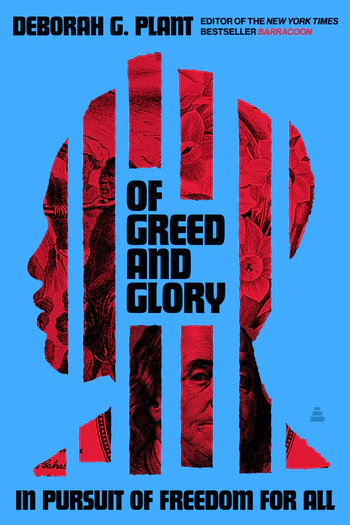OF GREED AND GLORY
Deborah G. Plant is an African American and Africana Studies Independent Scholar, Writer, and Literary Critic specializing in the life and works of Zora Neale Hurston. She is editor of the New York Times bestseller Barracoon: The Story of the Last “Black Cargo” by Zora Neale Hurston and the author of Alice Walker: A Woman for Our Times, a philosophical biography. She is also editor of The Inside Light: New Critical Essays on Zora Neale Hurston, and the author of Zora Neale Hurston: A Biography of the Spirit and Every Tub Must Sit On Its Own Bottom: The Philosophy and Politics of Zora Neale Hurston. She holds MA and Ph. D. degrees in English from the University of Nebraska-Lincoln. Plant played an instrumental role in founding the University of South Florida’s Department of Africana Studies, where she chaired the department for five years. She presently resides in Florida. ... Read more Read less
A ground-breaking, personal exploration of America’s obsession with continuing human bondage from the editor of the New York Times–bestselling Barracoon.
Freedom and equality are the watchwords of American democracy. But like justice, freedom and equality are meaningless when there is no corresponding practical application of the ideals they represent. Physical, bodily liberty is fundamental to every American’s personal sovereignty. And yet, millions of Americans—including author Deborah Plant’s brother, whose life sentence at Angola Prison reveals a shocking current parallel to her academic work on the history of slavery in America—are deprived of these basic freedoms every day.
In her studies of Zora Neale Hurston, Deborah Plant became fascinated by Hurston’s explanation for the atrocities of the international slave trade. In her memoir, Dust Tracks on a Road, Hurston wrote: “But the inescapable fact that stuck in my craw, was: my people had sold me and the white people had bought me. . . . It impressed upon me the universal nature of greed and glory.” We look the other way when the basic human rights of marginalized and stigmatized groups are violated and desecrated, not realizing that only the practice of justice everywhere secures justice, for any of us, anywhere.
An active vigilance is required of those who would be and remain free; with Of Greed and Glory, Deborah Plant reveals the many ways in which slavery continues in America today and charts our collective course toward personal sovereignty for all.
... Read more Read less










